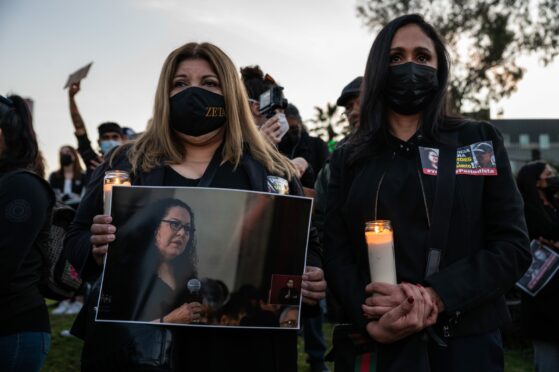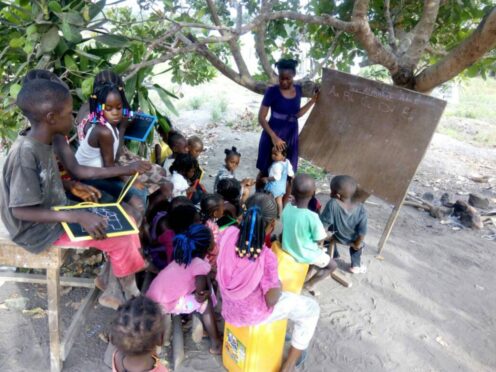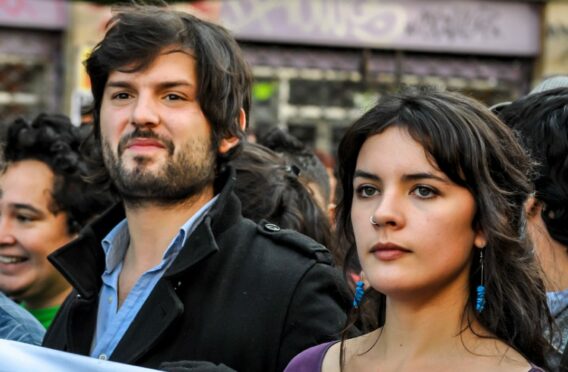
Ten years ago, they marched together as students demanded change in Chile. Today one is the spokeswoman for the country’s government about to be led by the other.
Camila Vallejo is the secretary general of government at just 33 but, two years older, Gabriel Boric will become leader of Chile next month, the country’s youngest president in two centuries.
His relative youth grabs attention but so, too, does his appearance. When first elected as a lawmaker in 2014, he turned up sporting a mohawk, tattoos and – shockingly – no tie. In a country that has a reputation for being a home to introverts, these things matter.
Close attention has been paid to his tattoos. One is a version of a map of the ice-capped islands and fjords where he grew up in Punta Arenas, at the foot of the South American continent. Others consist of a tree twisted into knots by the wind and a shining lighthouse that Boric wanted carved into his left arm when he was struggling with depression.
These days, he sports sober dark suits but still does not bother with a tie. The young president’s changing dress code is symbolic of the way he evolved in a bid to try to capture the broad consensus of voters since winning a stunning election victory last December over far-right rival José Antonio Kast.
Chile has come a long way since the dark days of General Augusto Pinochet’s dictatorship. Now it is about to make another step under a youthful president but analysts are unsure if this will be a leap forward – or back.
Some sceptical observers of the South American country, which has long prided itself on economic solvency, have voiced concern.
Much of the vote for Boric’s Convergencia Social party came from younger people, particularly women, who were fed up with establishment politicians after violent demonstrations in 2019.
Despite his tattoos and flirting with left-wing radicals, Boric has shown signs he has moved to the political centre ground since he was linked with the Communist Party earlier in his political career.
Last month, Boric named Chile’s moderate, Cambridge-educated central bank chief, Mario Marcel, as finance minister, signalling to the markets his leftist coalition intends to build a broad political coalition.
Whatever the new left-wing government does, it will shake up a country whose population of 19 million are known as conservatives.
Sandwiched between the Andes and the South Pacific, Chileans are said to have the impression their country contains everything anyone could want and there is little point in leaving. La Cordillera of Dreams, a 2019 documentary nominated as best Latin American film in the Spanish Goya awards, captures the Chilean nostalgia for the mountain range that borders their country.
They are renowned tea drinkers, doubtless because of the legacy of the 50,000 British people who made their home in Chile in the 20th Century to find jobs in mining.
Chile developed a reputation as the best-performing economy in South America during Pinochet’s long dictatorship between 1973 and 1990.
The so-called Chicago Boys, a group of prominent Chilean economists who studied in the US city, brought home neo-liberal ideals. These business-friendly policies prompted a boom but also left the nation with drastic increases in unemployment and poverty.
By the end of the dictatorship in 1990, Chile was one of the most unequal countries in the world, with 40% of the population living in poverty and 13% living in extreme poverty, according to World Bank figures.
As Chile went through a transition to democracy, economic growth continued at about 5% per year between 1990 and 2018. Poverty fell from 36% in 2000 to 9% in 2018. Nevertheless, riots blew up in 2019 after protests over rising transport fares, corruption, inflation and social inequality.
After winning a convincing victory, Boric vowed to unite Chile, fight “the privileges of the few” and tackle poverty and inequality. He said he wants to change the health system and change the private pension system, which is linked to the Pinochet regime. Most surprisingly, he has made an unlikely promise to fight climate change by blocking a proposed mining project in the world’s largest copper-producing nation.
The new president’s arrival inevitably invites comparison with Salvador Allende, the left-wing president who was elected in 1970 but then ousted three years later by a right-wing coup led by Pinochet.
Marcela Ahumada, director of the Salvador Allende Foundation, which upholds the memory of the president who killed himself as La Moneda palace came under attack from the rebel forces, said: “Times are different but Boric, like Allende, will try to find justice for the people and to make Chile a more fair country for its people. I think lots of people were inspired by Boric because, like Allende, they could tell he spoke from the heart.”
Despite his grand plans to change Chile, for much of his first year Boric will be constrained by three factors.
He will govern alongside a parliamentary assembly that is re-writing the 1980 constitution, a process started in response to 2019 violent riots to rid the nation of a constitution linked to the dictatorship.
Boric will also be limited by Chile’s Congress, which is fragmented among 22 parties. Should he introduce policies that spook the markets, he risks losing any support from centrist parties.
The measure of the country’s new young president will be in how he juggles the relationship between the presidency, the team re-writing the constitution and lawmakers.
In the wake of his victory, Boric promised to bring in reforms “with fiscal responsibility”.
Mario Amorós, a Spanish historian who has written books about Pinochet and Allende, said: “This seems a step forward for the Chilean people after years of the Pinochet dictatorship. One of the most important things will be changing the miserable pension system linked to that time.”
He said he met a 90-year-old lecturer who still has to work because the state pension is so low he cannot afford to live on it.
Promises aside, what really counts is his party only won 37 out of 155 seats in the lower house, which should force him to seek broad support for most of his proposals.
Carlos Malamud, an expert in Latin America at the Real Elcano Institute, a Madrid-based think tank, said: “So far, from what Boric has said, it appears he is on the right road. He has moderated. As he has a minority government he will need to do deals. But how he handles the major challenges – pension reforms, the economic crisis and the minimum salary – will be the test. Time will tell.”

Enjoy the convenience of having The Sunday Post delivered as a digital ePaper straight to your smartphone, tablet or computer.
Subscribe for only £5.49 a month and enjoy all the benefits of the printed paper as a digital replica.
Subscribe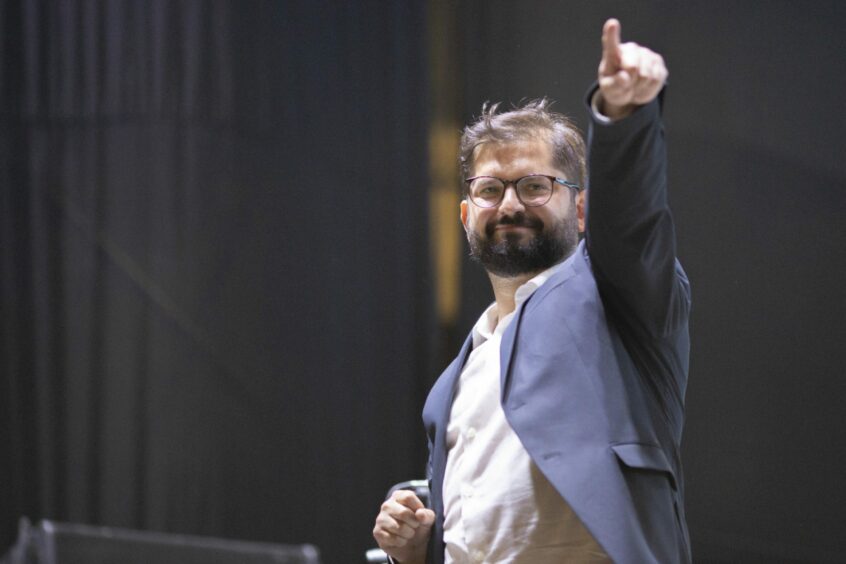
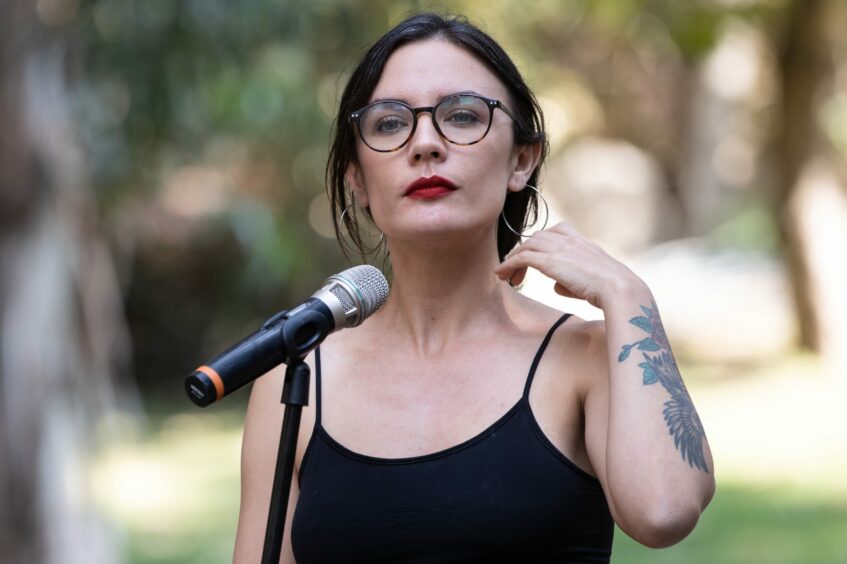 © Alberto Valdes/EPA-EFE/Shutterst
© Alberto Valdes/EPA-EFE/Shutterst
